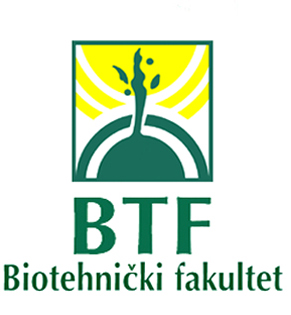| Year : |
2016 |
| Volume : |
62 |
| Issue : |
1 (31.03.2016) |
| |
|
| Authors : |
Milena MOTEVA, Velibor SPALEVIC, Antoaneta GIGOVA, Vjekoslav TANASKOVIK |
| Title : |
WATER USE EFFICIENCY AND YIELD-DEPENDENCES FOR CANOLA (Brassica napus, L.) UNDER IRRIGATION |
| Abstract : |
Worsened water availability conditions caused by the recent processes of climate warming evoke the attention of the scientists to the efficiency of the water use by crops. A useful tool for successful yield and water management is the yield-water relationship. The goal of the paper is to study the interrelations between water, water use efficiency and yield of canola and to calibrate some yield-water dependencies which can be recommended for prediction of the irrigation water amounts and the yield. A moderately early canola hybrid (Brassica napus, L.) was studied for its sensitivity and response to water. A field experiment in Sofia region, Bulgaria, was conducted. Three levels of soil moisture conditions in a chromic luvisols were tested: rain-fed; deficit moisture, managed by 50% deficit irrigation; and normal moisture conditions, managed by full irrigation at a refill point 80% of field capacity. The data from the experiment was processed by analysis of variance and regression analysis. The results show that soil moisture level has statistically significant impact on the yield accumulation. It contributed to increasing the seed yield from a minimum 1.319 Mg/ha at ET=189.0 mm under rain-fed conditions to a maximum of 4.889 Mg/ha at ET=310.0 mm under normal moisture conditions. The maximum irrigation water use efficiency in the experiment was 1.78 kg/m3 at an irrigation depth of 94 mm, ET=268.5 mm and seed yield - 4.189 Mg/ha. The maximum water use efficiency occurs earlier than the maximum yield. By managing 12% less (than needed) seasonal evapotranspiration, the yield losses were only 6%. Elasticity (sensitivity of the crop to water) can be used as an indicator for the critical range of the seasonal evapotranspiration, in which the water use efficiency and the yield are maximal (0≤EWP≤1). The yield response factor Ky of FAO linear function was established as 1.52. The parameters of the local Davidov equations were calibrated as a=3.53 and k=1.58 for the single-power equation and q=2.39 and r=13.63 for the two-power equation. Davidov equations are recommended with priority for forecasting of canola yields on the base of the seasonal crop evapotranspiration. |
| For citation : |
Moteva, M., Spalevic, V., Gigova, A., Tanaskovik, V. (2016): Water use efficiency and yield-dependences for canola (Brassica napus, L.) under irrigation. Agriculture and Forestry, 62 (1): 403-413. DOI: 10.17707/AgricultForest.62.1.42 |
| Keywords : |
canola, irrigation, water use efficiency, elasticity, FAO yield response factor, Davidov’s equations, Bulgaria |
| |
|
| download paper |

